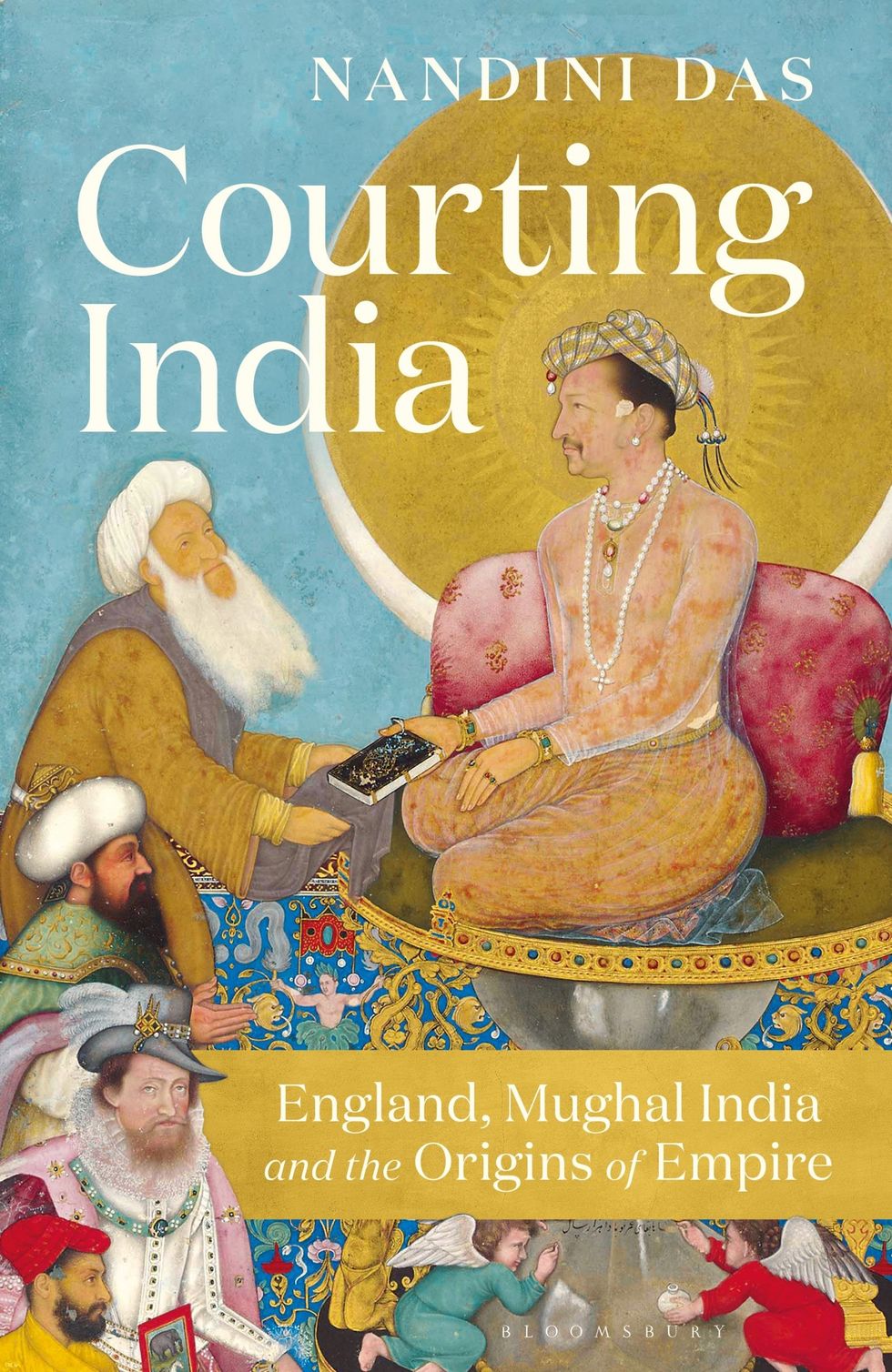THERE have been a lot of books, movies, and TV shows on the impact of the British Raj on India and subsequent reign ending, but very little on how it all began.
Newly published book Courting India looks at the British arrival in India in the early seventeenth century. The meticulously researched debut from Nandini Das gives an insider’s view via Thomas Roe, King James I’s first ambassador to the Mughal Empire, of an emerging British empire, whose imperial seeds were just being sown.
The professor of Early Modern Literature and Culture at the University of Oxford was inspired to write her debut after reading Roe’s journal and accounts of other contemporaries and fellow travellers from the seventeenth century, after being struck by how counter-intuitive that story was in comparison to our understanding of the British Empire in India.
Eastern Eye took a deep dive into history with Das to discuss her new book Courting India and early moments that shaped sub-continental history.
What first got you interested in history?
I study and teach sixteenth and seventeenth century literature, and what fascinates me most are stories that frame, express, and help us to negotiate cross-cultural contact and exchange. Those stories are everywhere in this period when England was just beginning to carve out a space for itself in the wider world. Many of these events were instrumental in shaping the world we know now, in fundamental ways. The account of Thomas Roe’s embassy to the court of the Mughal emperor Jahangir is one such story.
Tell us about the book?
Courting India is about a moment in the early seventeenth century, when the new king, James I, is convinced by the East India Company to send an official ambassador to the Mughal court to negotiate the all-important ‘firman’ or permission to trade. Hindsight bias usually tends to make looking at this period with our knowledge and assumptions about later power relationships between England and India, or England and the rest of the world, deeply problematic.
Essentially, nothing that we take for granted later is a certainty for Sir Thomas Roe, the man chosen by both the company and King.
Why is that?
Roe’s England was beset by inner strife and financial woes, and deeply conflicted about its own identity. The ‘Great Mogol,’ court he entered in 1616, on the other hand, was cultured, and widely considered to be one of the greatest and richest empires of the world.
I wanted to understand that encounter, and not just what Roe saw in India, but how he saw it. Why his responses were framed in certain ways, and where that stood in relation to England, India, and the British Empire’s role later came to play in the world.
Who are you hoping connects with Courting India?
Anyone who is interested in the history of contact – whether enforced or voluntary – between England and South Asia, will hopefully find that this early moment both unsettles their assumptions, and throws new light on what followed.
At the same time, it is also the story about ordinary people, and everyday encounters that established the foundations of grand sweeps of history, from the Bengali boy who became the focus of one of the East India Company’s earliest PR campaigns, to the English coachman who almost brought Roe’s relationship with the Mughals to breaking point.

There have been books and stories of the British Raj in India and the rule ending, but not as much about how it began, are you surprised by that?
Frustrated, perhaps, but not surprised. What defines English attempts to make their mark on the global stage in this very early period is uncertainty. They are deeply aware of how late they are to enter global trade, how under-resourced and under-supported by the state. English activities in India in this period are characterised by false starts and missed opportunities, which do not lend themselves to any kind of ‘rise and fall’ grand narrative. Yet that is precisely what makes it fascinating.
Was there a key thing that enabled the British to start that take over?
Not in this period. Roe repeatedly insisted – as much to the East India Company as to the Mughal state – that ‘war and traffique [trade] were incompatible,’ and that a sprawling colonial initiative on the Portuguese model was just bad business sense. Yet many of the assumptions and accusations he makes about India and Mughal statecraft would become absolutely central to later English views of the nation they were to colonise.
Tell us about something fascinating you learned while writing this book?
The East India Company’s fascination with bureaucracy and paperwork meant there is a wealth of historical material, which I could access. So, there are many wonderful stories, but what was particularly illuminating and challenging for me was juxtaposing those with Mughal and other non-English records of the period.
Tell us more…
I’ve always liked a Victorian invention called the stereoscope – it is an instrument which allows a viewer to look the same scene from the left and right eye. Once you focus, suddenly the whole thing becomes a single three-dimensional image. Putting the English and Portuguese, or the English and Mughal records next to each other felt just like that. So much that Roe was oblivious to during his embassy suddenly becomes clear.
Is there a particular part of the book that is a favourite?
There are quite a few to choose from, but the one at the centre of this book is about a bet or ‘wager’ made between Roe and the Mughal emperor - but you will need to read the book to find out who won!
How important is it to be aware of history like this?
It is essential. To ignore this foundational moment of contact would be to have only partial understanding of what both the East India Company and British Empire in India were to become in later years.
How do you feel ahead of your book being published?
Courting India is based on over a decade’s worth of research into early English (pre-empire) cross-cultural contact, so it is exciting to see it take physical shape as an actual book. It is even more exciting to be able to take those stories, events, and ideas I have spent so much time excavating, and share them with others.
What do you enjoy reading?
My tastes are fairly eclectic and what I choose to read depends on my mood. One pleasure of working on literature and cultural history is that reading is very much part of my work, but for comfort reading, I gravitate towards detective fiction, particularly historical detective fiction.
What can we expect next from you?
If Courting India zips across from James I’s England to Jahangir’s India, the next book has an even bigger canvas. It tells the story of England in the sixteenth and seventeenth centuries, as it was shaped by people moving in and out of the country.
What inspires you as a writer?
The same things that inspire me as a researcher – to be able to take the traces of lives long gone and give them new voice.
Why should we pick up the new book?
The relationship between England and India, and South Asia in general, left an indelible mark on both nations and global geo-politics. Courting India, in many ways, marks its starting point.
Besides, you need to find out whether in that wager between Roe and Jahangir I mentioned earlier, whether it was the English ambassador who lost his money, or the Mughal emperor.
Courting India is available now on Bloomsbury Publishing




